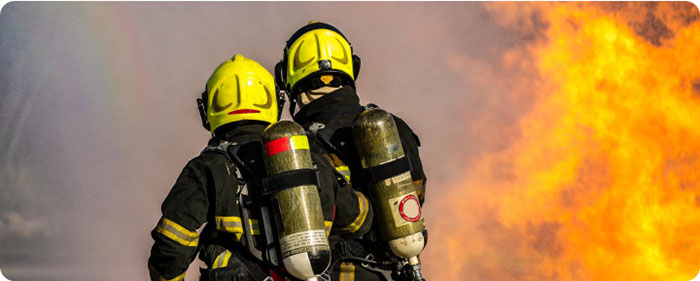Government Paramedic Jobs and Firefighter Careers: Your Complete Guide

Emergencies happen every day, requiring the swift and professional response of highly trained paramedics and firefighters. These government employees are essential in handling life-threatening situations, providing treatment, and making split-second decisions that save lives. If you’re interested in a career in emergency services, this guide offers a clear roadmap for becoming a paramedic or firefighter, detailing the necessary skills and key responsibilities involved in these essential roles.
Becoming a Government Paramedic
Step 1: Education Requirements
To become a government paramedic, you’ll need a high school diploma or GED. This foundational education is required to proceed with further training and certification.
Step 2: Dive into Emergency Medical Services (EMS)
Before jumping directly into EMT training, consider exploring introductory courses in EMS. Many community colleges offer these, providing a solid overview of the field. These courses help you understand the day-to-day duties of paramedics, from patient treatment to the use of essential medical supplies.
Step 3: EMT-Basic Certification
Your first formal training will be to become an Emergency Medical Technician (EMT-Basic). This certification typically takes 3-6 months and includes classroom learning and hands-on training. EMTs provide essential emergency care, from performing CPR to administering basic life support (BLS) during critical situations.
Step 4: Obtain State Licensure (Round 1)
After completing your EMT-Basic training, the next step is to pass the National Registry of Emergency Medical Technicians (NREMT) exam. This certification is required in most states and allows you to work as an EMT, gaining the experience needed to become a paramedic.
Step 5: Gaining Field Experience
After becoming certified, most aspiring paramedics work as EMTs for 6-12 months. This experience is crucial for developing the ability to respond to high-pressure medical emergencies. During this time, you’ll refine your skills and decide whether this career is right for you.
Step 6: Enroll in Paramedic Training
Next, you’ll enter a paramedic training program, typically taking 1-2 years to complete. This advanced training covers a range of subjects, including anatomy, physiology, advanced life support techniques, and medication administration. Programs often include certification courses in basic life support (BLS) and advanced life support through organizations like the American Heart Association.
Step 7: Obtain State Licensure (Round 2)
Upon completing paramedic training, you must pass another NREMT exam to become a fully licensed paramedic. State licensure requirements vary, so please check your local regulations to ensure you comply.
Step 8: Pursue an Associate’s Degree
While not always required, earning an associate’s degree in Emergency Medical Services or a related field can boost your career prospects. Many government paramedic positions prefer candidates with this additional education, as it indicates a deeper understanding of emergency care.
Step 9: Continuous Learning and Advanced Certifications
Emergency medicine constantly evolves, and paramedics must stay updated with new techniques. Consider earning additional certifications like Advanced Cardiac Life Support (ACLS) and Pediatric Advanced Life Support (PALS) to stand out in the job market and ensure you can handle various emergencies.
Becoming a Firefighter

Step 1: Meeting Basic Requirements
Firefighting is a demanding job, both physically and mentally. First, you must be at least 18 years old, have a high school diploma or GED, and hold a valid driver’s license. A clean criminal record and excellent physical condition are also required.
Step 2: EMT Certification
Many fire departments require firefighters to be EMT-certified. This certification means firefighters can assist with medical emergencies as part of their job duties, often being the first to respond to accidents or medical calls.
Step 3: Fire Science Education
While not always mandatory, pursuing an associate’s or bachelor’s degree in Fire Science can give you a competitive edge when applying for firefighter positions. These programs cover fire prevention, safety protocols, and hazardous materials handling.
Step 4: Gaining Experience
Many aspiring firefighters begin by volunteering at local fire departments or working as EMTs. This hands-on experience is invaluable and allows you to develop a strong foundation in emergency services, understand the equipment and supplies used, and learn how to manage them effectively during real-life incidents.
Step 5: Applying for Firefighter Positions
Once you’ve met the basic requirements and gained some experience, it’s time to start applying for firefighter positions. These jobs are typically available in city or county fire departments, and the application process often includes background checks and multiple rounds of physical testing.
Step 6: Pass the Candidate Physical Ability Test (CPAT)
The CPAT is a standardized physical test that measures a candidate’s ability to perform the demanding tasks required of a firefighter. This test includes activities such as carrying equipment, dragging hoses, and performing simulated rescue operations.
Step 7: Fire Academy Training
If hired, you will attend a fire academy for 12-16 weeks of intensive training. The program teaches essential skills such as firefighting techniques, emergency medical procedures, and hazardous materials management. Firefighters must also learn fire prevention and safety education to reduce the risk of fires in their communities.
Step 8: Ongoing Training and Certifications
Like paramedics, firefighters must continuously train throughout their careers. This includes staying updated with new firefighting methods, maintaining your EMT certification, and participating in regular physical training to stay prepared for the job’s demands.
Exploring Government Paramedic and Firefighter Jobs

Government paramedic and firefighter jobs are available nationwide in various cities, including San Rafael. These positions often involve responding to emergencies and working with teams to deliver life-saving care or handle dangerous fires. Employees in these roles are highly valued for their commitment to serving the public, and they receive continuous training and access to the latest supplies and technologies to ensure they can perform their duties effectively.
Are You Ready for the Challenge?
Becoming a government paramedic or firefighter is not easy—it requires extensive training, dedication, and the ability to think quickly in stressful situations. Whether you provide critical treatment as a paramedic or respond to fire emergencies as a firefighter, your impact is significant.
Both careers offer the satisfaction of helping others in their most vulnerable moments. If you're ready to step into a role where your work saves lives and helps protect communities, becoming a paramedic or firefighter may be the right path.

Final Thoughts
Government paramedic and firefighter careers are rewarding but demanding. With the proper training, certifications, and continuous learning, you can enter a field that challenges you physically and mentally while offering the opportunity to make a real difference. Whether delivering basic life support or extinguishing fires, these careers place you at the heart of your community’s emergency response team.
























































